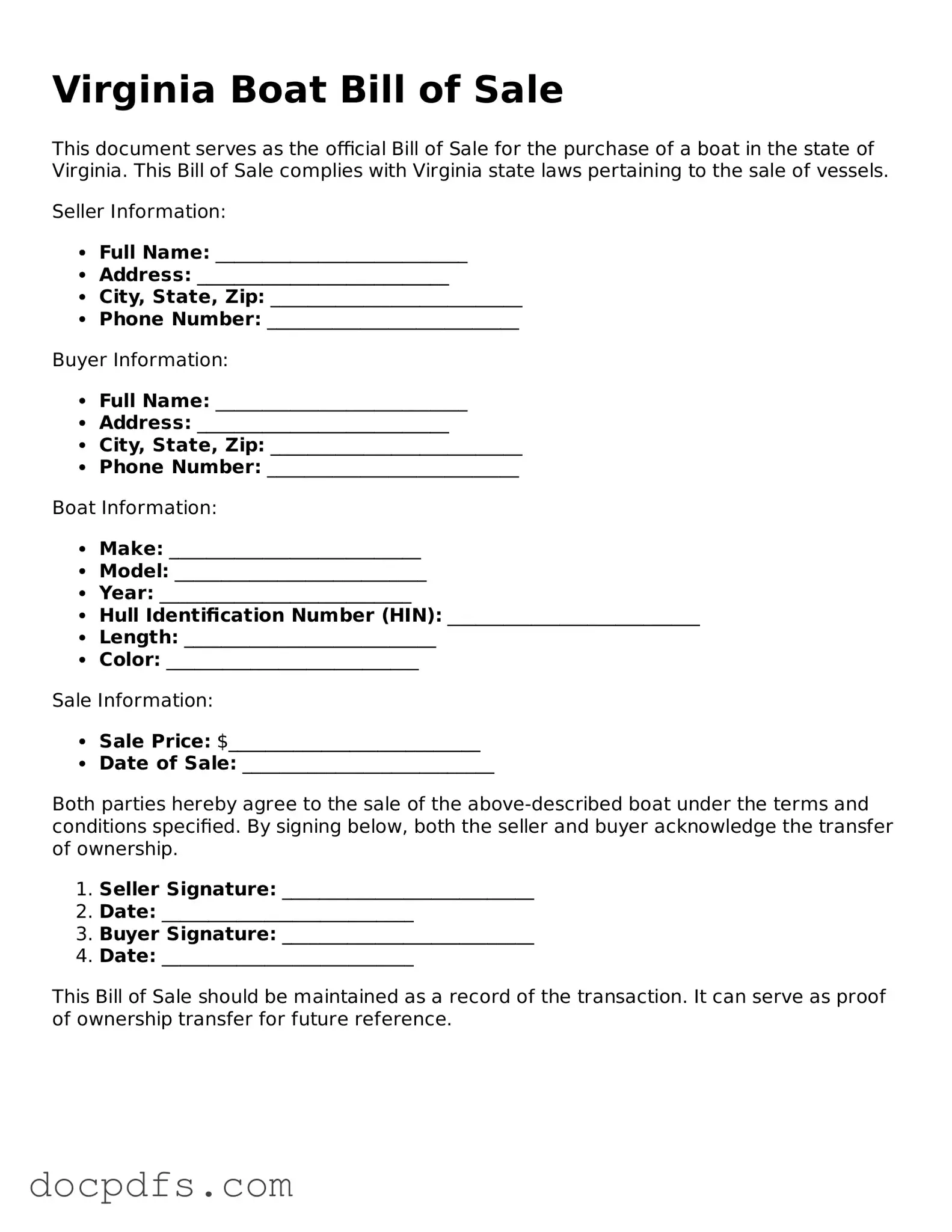What is a Virginia Boat Bill of Sale?
A Virginia Boat Bill of Sale is a legal document that records the transfer of ownership of a boat from one party to another. This form serves as proof of the transaction and includes important details about the boat, the buyer, and the seller. It is essential for registering the boat in the new owner's name.
The Boat Bill of Sale typically requires the following information:
-
Names and addresses of both the buyer and the seller
-
Description of the boat, including make, model, year, and hull identification number (HIN)
-
Sale price of the boat
-
Date of the sale
-
Signatures of both parties
Having complete and accurate information on the form is crucial for a smooth transfer of ownership.
Is the Virginia Boat Bill of Sale required for all boat sales?
While a Boat Bill of Sale is not legally required for all boat sales in Virginia, it is highly recommended. This document provides protection for both the buyer and the seller by establishing clear terms of the sale. In some cases, it may be necessary for registration purposes or when applying for a title.
Can I create my own Boat Bill of Sale?
Yes, you can create your own Boat Bill of Sale. However, it is important to ensure that all required information is included and that the document complies with Virginia state laws. Using a template or a form specifically designed for this purpose can help ensure that you meet all necessary requirements.
Do I need a notary for the Boat Bill of Sale?
A notary is not required for a Virginia Boat Bill of Sale, but having the document notarized can add an extra layer of protection. A notarized bill of sale can help verify the identities of the parties involved and may be beneficial if any disputes arise in the future.
How do I register my boat after completing the Bill of Sale?
After completing the Boat Bill of Sale, the new owner should take the following steps to register the boat:
-
Visit the Virginia Department of Wildlife Resources website or a local office.
-
Complete the boat registration application.
-
Submit the completed application along with the Boat Bill of Sale and any required fees.
Registration must be completed within 30 days of the sale to avoid penalties.
What if the boat has a lien or is financed?
If the boat has a lien or is financed, it is important to address this before completing the sale. The seller should provide the buyer with information about the lien and ensure that it is satisfied or released before the transfer of ownership. Failing to do so can lead to complications for the buyer.

